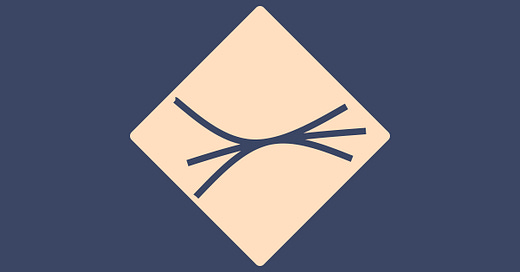Every kind of tension (a living document)
Help me document every form of tension we can use in our stories
You’ve heard the phrase “Conflict on every page.”
I’ve written previously about why I dislike this advice. That post went into detail about the three-stroke engine I believe drives stories. But having analyzed this idea further, I think there’s an even better way to think about it.
Here’s how I would rephrase that advice: Tension on every page.
Why tension? Because it’s bigger than conflict, it includes conflict. Conflict is, in fact, one form of tension—but there are numerous others which can be just as effective at building narrative momentum and keeping readers glued to the page.
When writing a book, variety is an essential part of keeping things interesting. If you limit yourself to Conflict as your only form of tension, you are missing out on countless sources of reader engagement, as well as creating something that’s more one-note than it has to be.
Put simply: conflict is one tool in our toolbox, but there are others. Mastering more forms of tension will allow you to bring more complex, interesting, and gripping stories to your readers.
Without further ado…
The list: every kind of tension
Here’s the living list of every kind of tension.
The examples listed below each heading are what a reader might think when this form of tension is at work.
There is certainly overlap in many of these forms. But as long as there’s a distinct question the reader might be asking, I’ll consider that its own unique form.
As you can see below, tension usually takes the form of a question. If the reader is asking questions (consciously or not), they will want to keep reading in order to find answers. That’s the main reason they keep turning the page.
Conflict
“Who will win this fight?”
“Who will win this argument?”
Mystery
“Who committed this murder?” (Negative, partly Horror)
“Who sent this gift?” (Positive, partly Hope)
“What’s in the bag?”
“What’s the tragic backstory no one’s talking about?”
Desire
“Will she get the thing she wants?”
“Will he be able to afford the car?”
“Will she find happiness?”
Deadlines
“Will she get to the train station on time?”
“Will he find love before he dies?”
These are just another form of Desire, but with a ticking clock attached—which is always a good idea!
Romantic
“Will they resolve their differences?”
“Just kiss already!”
Loss
“Will he be able to keep what he worked so hard to earn?”
“Is this the end of the relationship?”
“She could win, but what will it cost her?”
(Reader) Paranoia
“It feels like something bad is about to happen…”
In film, this can be communicated purely through music, and that’s often enough to put us on the edge of our seats
“Something feels off…”
Many suspense/horror stories lean heavily on this question
(Reader) Shock, Horror
“That can’t mean what I think it means!”
“Did that really just happen?”
“How much worse can this get?”
(Reader) Hope
“I really want things to work out for him!”
“I hope the cost won’t be too great…”
(Reader) Curiosity
“Who is this ‘Seer’ and why is everyone afraid of him?”
“How does this magic system work?”
“What are the rules of social etiquette in this world?”
These are examples of worldbuilding tension. We are literally looking for the details of an unknown system that’s unique to this world, whether it be our world or a different one.
Curiosity is similar to Mystery, but more intellectual rather than emotional.
Examples: tension in popular novels
In addition to the list, I always think it’s useful to see writing techniques used in concrete examples. Below is a random selection of books I’ve enjoyed, along with a short analysis of the tensions they employed, roughly in order of impact.
Submit more in the comments and I will add them to the list!
A Wizard of Earthsea
Ursula K. LeGuin
Curiosity
“How does magic work?”
“What is life like in a world made of small islands?”
Horror
“What happens if the shadow creature catches up with Ged?”
Conflict
“Will Ged beat the dragons?”
The Book of Strange New Things
Michel Faber
Paranoia
“Why does this new planet feel off? What are we not being told?”
Curiosity
“What are the aliens like?”
Romantic
“Will Peter stay close to his wife? Will he fall for someone else?”
Harry Potter and the Sorcerer’s Stone
J.K. Rowling
Curiosity
“What does it mean that Harry is a wizard?”
Mystery
“What is the Sorcerer’s Stone and will the gang find it?”
Horror
“What is the dark entity attached to Professor Quirrell?”
The Lightbringer series
Brent Weeks
Conflict
“Who will win the war?”
Curiosity
“How does magic work?”
The Lord of the Rings: The Fellowship of the Ring
J.R.R. Tolkien
Curiosity
“I want to know everything about this world”
Horror
“What if the Ringwraiths catch Frodo?”
“What if Sauron wins?”
Conflict
“Will the fellowship overcome every obstacle (the mountain pass of Caradhras, the Mines of Moria…)?”
The Name of the Wind
Patrick Rothfuss
Mystery
“Who are the Chrandrian? Why do they do such horrific things?”
Deadlines
“Will Kvothe make enough money before the next term starts?”
Curiosity
“How does magic work? (Sympathy, Naming, Sygaldry)”
“How does the Eolian work? How do you earn your pipes?”
“What’s Auri’s deal?”
(This all does double-duty; we get both the tension that keeps us reading and a “world so real you can touch it,” in Rothfuss’ own words)
The Picture of Dorian Gray
Oscar Wilde
Horror
“What will Dorian lose if he continues down this dark path?”
Hope
“I hope Dorian resists his evil impulses”
Curiosity
“How does the painting work? How will it develop and evolve?”
Pride and Prejudice
Jane Austen
Romantic
“Will Elizabeth and Mr. Darcy resolve their differences?”
Curiosity
“What are the complex social customs of this place and time?”
Shock, Horror
“How could Lydia run off and elope? What damage will that do to the family?”
Red Rising
Pierce Brown
Conflict
“Will Darrow dismantle the Society?”
Curiosity
“How does the color caste system work?”
More resources on tension
If you want more expansion on the definition of tension and what it brings to the page, here are a few resources I recommend:
Storm Writing School - T.D. Storm
Tim Storm specializes in the topic of tension. Here are some articles I recommend.
https://stormwritingschool.com/how-to-create-story-momentum/
https://stormwritingschool.com/the-key-to-reader-engagement/
The Fire in Fiction - Donald Maass
A book on the craft of writing, with particular emphasis on “micro-tension”
“Deconstructing Micro-Tension” - Jan O’Hara
An article summarizing micro-tension
Join me!
What do you think about tension? What forms of tension did I miss? Which books should I add to the list? Tell me in the comments!
I plan to continue updating this post so it remains a thorough reference on the topic of tension.






In terms of sources of tension, there is Loss. The fear of the loss of a child or a fortune or a friend, or a home. Lots of books are written around the anticipation of loss.
Can I step back and suggest a broader classification, into which your classification scheme may then fit? Without claiming completeness, let me suggest four basic types of tension:
* Fatalist tension: will a thing happen over which the characters have no control?
* Exploratory tension: will a character find something?
* Performative tension: will a character accomplish a task?
* Moral tension: how will a character choose between two competing values
Of these, I will suggest that moral tension is the most important and the most useful, for a couple of reasons:
1. With exploratory and performative tension, the character is motivated to solve the problem and will reach it by the simplest path available. This means that if the story is not to end prematurely, countless obstacles have to be thrown in their way artificially to slow them down. But with moral tension, the character does not want to have to make the choice, rather, they seek every way they can to delay making it. The task of the plot, then, is simply to force them to make it.
2. The resolution is not obvious. With exploratory tension, we know that the thing will be found. With performative tension, we know that the task will be performed. We have to suspend disbelief to imagine that these things are in doubt. But with moral tension, the resolution is not obvious. The character might genuinely make either choice.
3. There is a price to be paid for making a moral choice. The character is changed or at least revealed by the choice they make. This makes the story arc more complete. There is a reason why serial stories are so often based on exploratory tension (will Dr. House diagnose the disease of the week) or performative tension (Will the Lone Ranger out-draw this week's special guest star?) Exploratory and performative plots do not fundamentally change the character, meaning you can send them on the same kind of mission next week. This is also why almost no serial ever has a satisfactory finale. It is hard to suddenly switch to a moral plot that arcs all the way back to the beginning of the series and give a satisfying conclusion to the whole.
As to conflict, I tend to see it as the release of tension rather than as a form of tension, though, of course, its aftermath may give rise to new tensions.